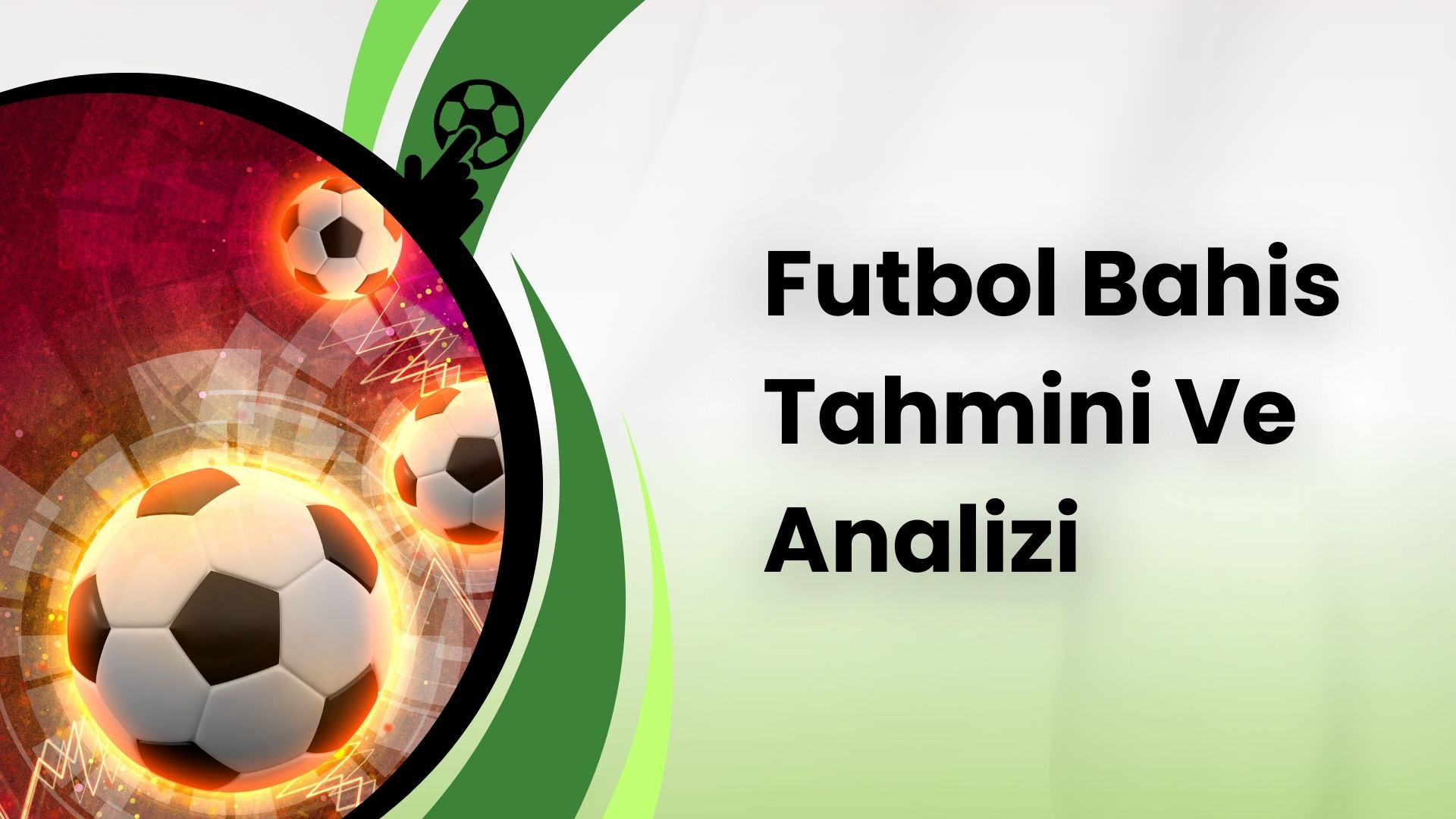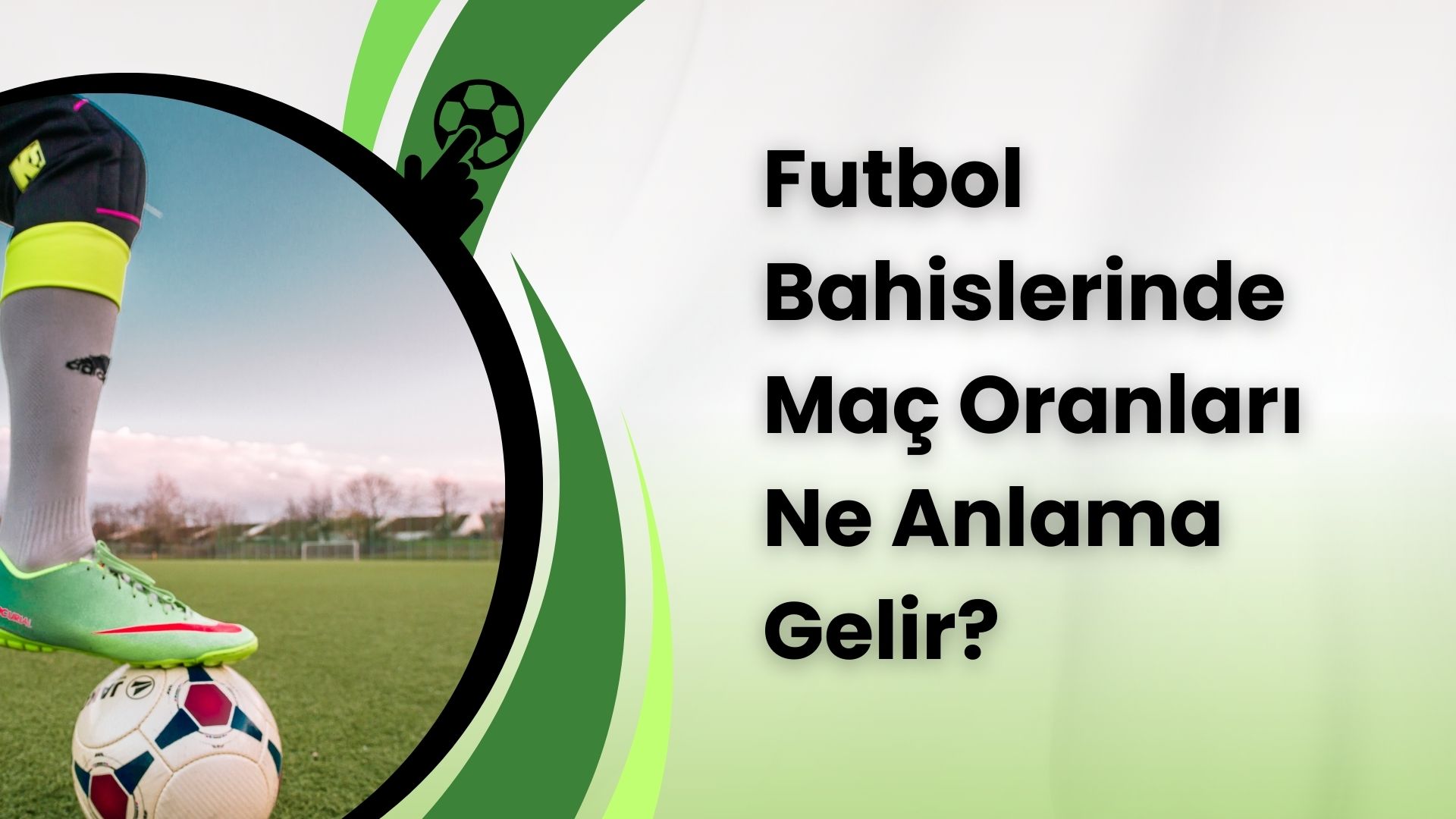Futbol bahis kazanma yolları nasıl geliştirilir? Bahislerde daha üst tutarda ikramiyeler nasıl alınır? Kazanç analizlerini bu içeriklerden keşfet.
Bahis oyunlarında kazanmanın ve daha çok para kazanmanın yolu, yordamı var mıdır? Nasıl uygulanır, neler yapılır? Basketbol, tenis ve futbol bahis kazanma yolları için bahis stratejilerini inceledik. Sen de her bahsine özel taktikler geliştirerek daha çok kazanç yolları geliştirebilirsin. İlk bonustan başlamaya ne dersin?
Canlı Futbol Bahislerinde Kazanç Mümkün mü?
Canlı casino sitelerinde futbol bahis kazanma yolları her zaman bulunmaktadır. Eğer bunları doğru değerlendirirsen şansına olacak çok daha fazla oyun hakları elde edebilirsin. En başta bu gambling dünyasında bonuslar verildiği aşikâr. Bunları en faydalı biçimlerde kullanman, heba etmemen de önem taşımaktadır. Mesela deneme bonuslarını inceleyebiliriz.
Casino alanlarında free spin şeklinde verilen bu bonusları, oyun bahislerinde kullanabilirsin. Yatırım yapmadan ve çoğu zaman da çevrim şartlarını gerek olmadan uygulanabilir promosyon türleridir. Bunun yanı sıra bahisler için de bedava bahis yani free bet kampanya türleri uygulanmaktadır. Çoğu zaman kayıt olduğun siteden direkt olarak üyelikten hemen sonra alabilirsin.
Sporda geçerli olan alanlara ve bahis türlerine göre kullanıp kazanca dönüştürebilirsin. İlk ve sonraki her para yatırma işleminde alabileceğin çeşitli promosyonlar da var. Bunları mutlaka değerlendir. Ama yatırım yaparken bonus algoritmalarıyla oynamak istiyorsan durumu değişir. Başlangıçta yatırım ile bonus kullanmaz isen olası kayıplar halinde uygulayabileceğin bir takım promosyon türleri bulunmaktadır.
Discount bonusları ya da nakit telafi kampanyaları bunlara en güzel örneklerdir. Mesela bir canlı kumarhane oyununda yatırım yaptın, oynadın ve kaybettin diyelim. Bu durumda anlık discount bonusu talep edebilirsin. Keza bahisler için de geri iade kampanyaları bulunmaktadır.
Her ne kadar oranları düşük olsa da kazanç sınırlandırmaları genellikle bulunmamaktadır. Bunun dışındaki tüm özel kampanyaları kullanarak da bahis işlemlerinden çok daha fazla gelir elde edebilirsin.
Kupon Türlerine Göre Bahislerde Kazanç Yolu
Kupon türlerine göre de futbol bahis kazanma yolları tabii ki geliştirilebilir. İdeal bahis stratejileri belirlemek ve doğru miktarlar girmek, yapılabilecek en iyi hamleler arasında yer almaktadır. Özellikle akümülatör bahisleri, son dönemlerde keşfedilen ve kazançlarının yüksek oranda olduğu anlaşılan bahis türleridir. Bazı oyuncular tek maça bahis yapmaktan hoşlanırken bazıları kombine oynayabilmektedir. Bu biraz da analizlere ve o bahis programının verimine bağlı olarak uygulanmaktadır.
Ama sistem bahisleri olsun acca bahisleri olsun mutlaka değerlendirilmesi gerektiğini düşünmekteyiz. Ayrıca çift yönlü bahis türleri de ideal yatırımlarını korur opsiyonlardandır. Mesela back to lay bahis türlerinden bahsedebiliriz. Bunlar yüksek oranda bahis yapıldıktan sonra oranlar düştüğünde karşı tarafa bahis yapma unsurları olarak bilinmektedir.
Spread bahis gibi farklı bahis türlerini de değerlendirebilirsin. Bunlar özel analizler ve stratejiler ile uygulanabilir ve bahislerini korur. Yabancı bahis şirketlerinin çoğunda standart dışı bahis türlerini uygulayabilirsin.
Sanal Futbol Bahislerinde Kazanma Yöntemleri
Canlı ya da sanal futbol bahis kazanma yolları nelerdir? Mesela hileli programlar kullanılır mı? Bahislerde hile yapan siteler pek tabii bulunabilmektedir. Güvenilir olmayan firmaları, hiçbir kullanıcıya tabi ki önermekteyiz. Ayrıca oyuncuların da bahis ya da casino oyunlarında hile yapmasını hiçbir suretle önermemiz mümkün değildir.
Ancak buna rağmen sektörde de çok yazılım var. Hileli programlar da çıkarılabilmektedir. Oyuncuların yatırımlarını hedef alarak dolandırıcılık unsuru çıkarılan pek çok hile yazılımları da bulunmaktadır. Oysa ki çok kazandıran bahis programlarını seçtiğin zaman bunların hiçbirine gerek kalmamaktadır. Mesela hangileri merak ediyor musun?
- Premier League
- Türkiye Süper Lig
- İngiltere Premier Ligi
- Bundesliga
- İspanya LaLiga
- Euroleague
- NBA
Bu örneğini verdiğimiz bahis ligleri, genellikle Türkiye’deki şirketlerde favori olanlardır. Ve Avrupalı bahis sitelerinde de hemen hemen benzerlerin popüler olduğunu söyleyebiliriz. Zira dünya futbolunda çok prestijli organizasyonlar uygulanmaktadır. Onlarda hiç kuşkusuz UEFA ilk sırada yer almaktadır.
Ayrıca Avrupa’nın en değerli 5 takımı için sunulan bahis marketleri ve oranları da hayli avantajlıdır. La Liga, Premier Lig, Bundesliga, Serie A. Hem maç öncesi alanlarda hem de canlı bahis programlarında sen de bu popüler liglere oynayabilirsin. Ayrıca Şampiyonlar Ligi, her dönemin en yüksek kazançlı bahis marketleri arasında yer almaktadır.
Zira tüm dünyada en çok katılımcının olduğu bahis programları bunlardır. Dolayısıyla marketler belirlenirken, katılımcıların sağladığı bahis miktarları da önemli rol oynamaktadır.
E-Sport Bahislerinde Kazanma Yolları
Elektronik futbol bahis kazanma yolları arasında yine şikeli yazılımlardan bahsedilmektedir. Ama bunlar doğru yollar, doğru yöntemler değildir. E-sports kategorisinin en iyi olan bahis şirketlerine giriş ise doğru istikameti göstermektedir. Kazanç yönünü sen de daha fazla arttırmak ve geliştirmek istiyorsan önerdiğimiz casino şirketlerine giriş sağlayabilirsin.
Futbol alanında bahis yapmak için standart sporların yanı sıra elektronik sporları da değerlendirebilirsin. Futbol kategorisinde sunulan marketler, dünya çapındaki organizasyonlar ile uygulanmaktadır.
Bahis şirketlerinde de son birkaç yıldır esports kategorisinden yapılan bahisler büyük havuzları dolduruyor. Sen de futbol tutkusunu çok farklı alanlarla kazanca dönüştürebilirsin. Bunun yanı sıra elektronik sporlarda, özellikle basketbol, Valorant, Dota 2 gibi kategorilerde oynayabilirsin. Böylelikle ekstra açılardan da bahis kazançları elde etmen mümkündür.
Düşük Bet Girişlerinde Büyük Kazanç Var mı?
En az para yatırma miktarlarıyla futbol bahis kazanma yolları oyunculara göre de geliştirilebilir. Sen de kendi bahis stratejilerini uygulayarak daha fazla kazançlar elde edebilirsin. Çift yönlü bet taktikleri genellikle yabancı bahis şirketlerinde uygulanmaktadır. Each way bahisleri, futbolda kazanmanın en kolay yöntemleri arasında değerlendirilebilir. Ancak bunlar her oyuncu tarafından yapılabilir unsurlar değildir.
Bahislerde bilginin olması gerekmektedir. Terimler nasıldır? Bahis stratejileri ve taktikler nasıl uygulanır? Bütün bunlara dair bilgiler aldığın sürece ancak bazı kazançlar elde edebilirsin.
Artırılmış oran, ekstra oran türü kampanyalar da bazı şirketlerde sunulmaktadır. Standart oranların dışında çok daha yüksek oranlar verilmektedir. Tabi ki bu bahislerin her zaman kazanması mümkün değildir. Bu sebeplerle zaten çok yüksek oranlar verilmektedir.
Ancak bazen bu ekstra oranlar tuttuğunda da çok yüksek ikramiyeler elde edebilirsin. O yüzden günlük olarak sunulan ekstra oran menülerini mutlaka incelemeni önermekteyiz. Zira bunları denemek için 1 TL değerinde bile bahis yapabilirsin.
Sistem Bahisleri Futbolda Kazandırır mı?
Sistem bahisleri kurarak futbol bahis kazanma yolları artırılabilmektedir. Özellikle 1, 2, 3, 4, 5 sistem oynayan pek çok oyuncu bulunmaktadır. Sistem bahislerinde kupona eklenen tüm müsabakaların kazanma zorunluluğu bulunmamaktadır. İşte bu nedenle de zaten cazip olarak değerlendirilmektedir. Keza sistem 5, 6, 7 popülerliği de mevcuttu.
Süper Lig bahislerinde ya da Avrupa futbol turnuvalarında oluşturacağın bahis kuponlarında sistem oynayabilirsin. Keza zincir bahis programları da aynı unsurlarda sunulmaktadır. Yani standart kombine bahis yerine akümülatör ya da sistem bahisleri uygulayabilirsin.
Avrupa ve İngiliz bahis şirketlerini de bizler tavsiyelerimize her daim eklemekteyiz. Standart oranlardan çok daha fazlasını kazanmak istiyorsan bu sitelerde hemen artırılmış olan desteklerini değerlendirebilirsin. Cazip oranlar ile sunmak üzere bazı ligleri uygun gördük. Tabloya eklediğimiz bahis türleri voleybol alanında en çok kupon yapılan etkinlikleri oluşturmaktadır.
| Erkekler. Şampiyonlar Ligi |
| Kadınlar. Şampiyonlar Ligi |
| Erkekler. Polonya. Plusliga |
| Erkekler. Türkiye. Efeler Ligi |
| Erkekler. Şampiyonlar Ligi |
| Kadınlar. Şampiyonlar Ligi |









